Norse Pantheon
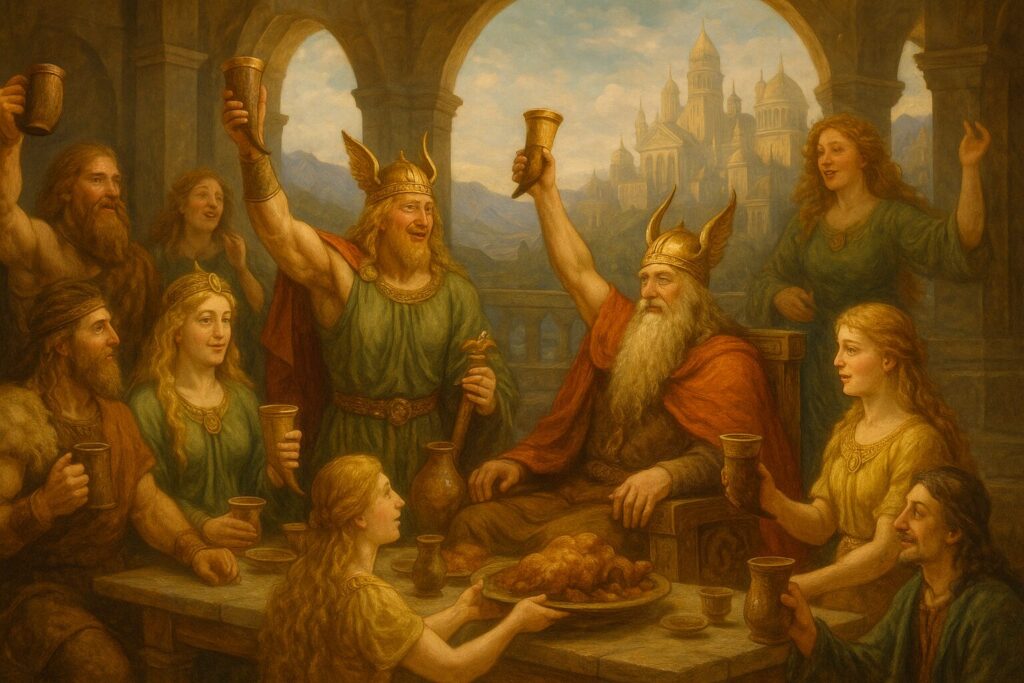
The Æsir and the Vanir
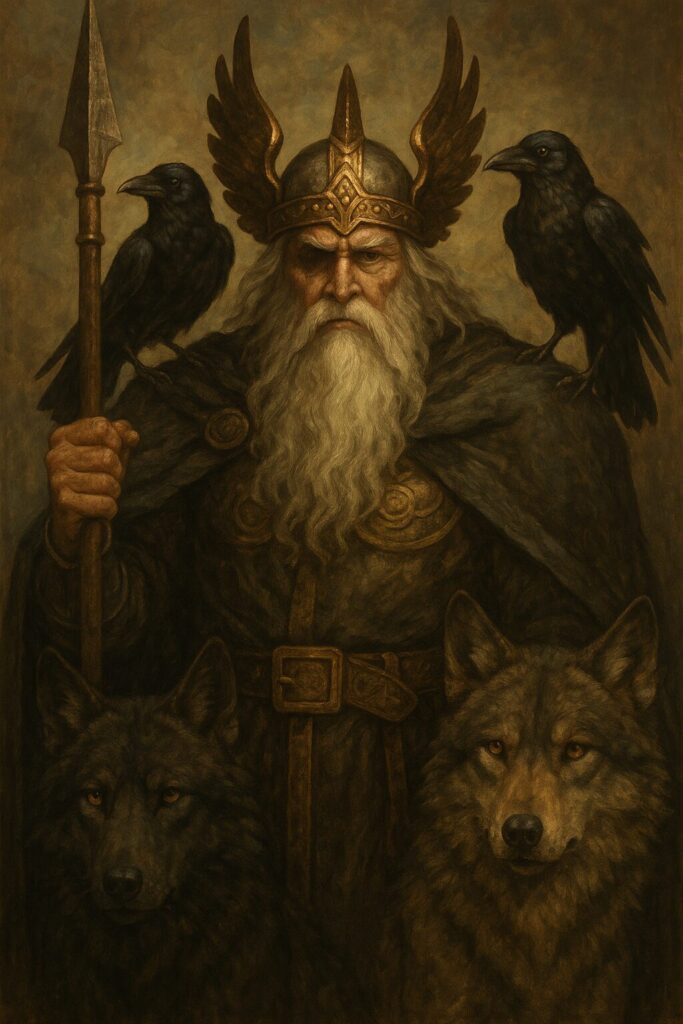
Odin
The Allfather and King of the Norse Gods, ruling over Asgard and the Æsir. He is the god of wisdom, war, death, poetry, and magic. He sacrificed one of his eyes at Mímir’s well to gain cosmic knowledge and hung himself on the World Tree, Yggdrasil, to obtain the secrets of the runes. He is the father of many important gods, including Thor and Balder. Odin is often accompanied by his ravens, Huginn (Thought) and Muninn (Memory), as well as his wolves, Geri and Freki. His hall, Valhalla, welcomes warriors who die bravely in battle.
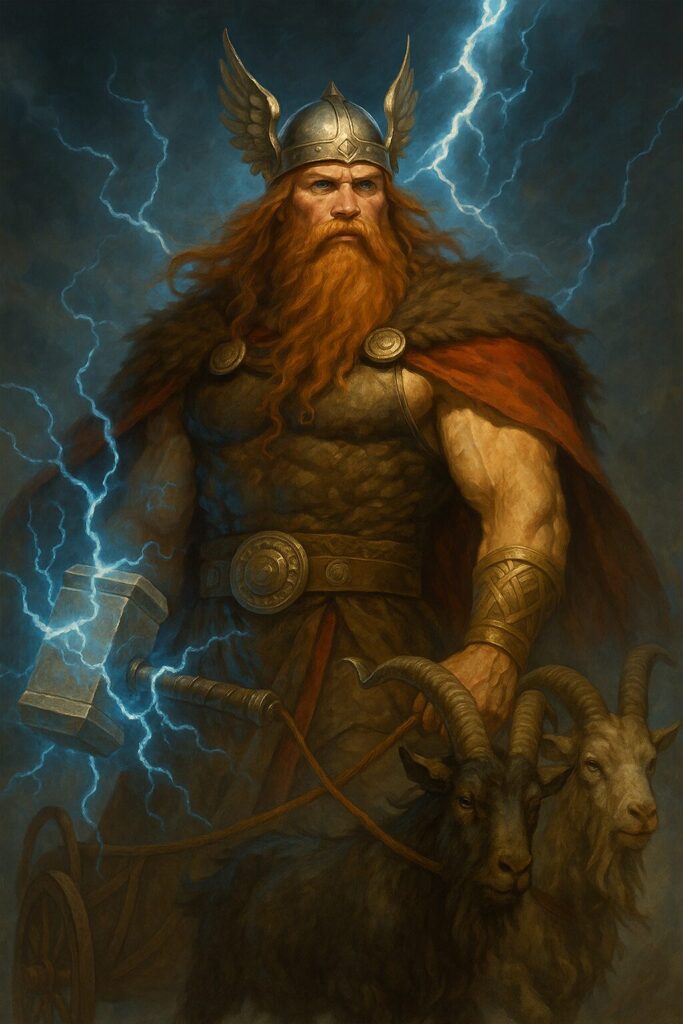
Thor
The God of Thunder and Strength, known for his immense strength and role as the protector of gods and humans against giants and other threats. He wields the enchanted hammer Mjolnir, which returns to his hand when thrown and can summon lightning. He is the son of Odin and the earth goddess Jörð. Though often seen as a warrior, he is also a defender of justice and order. His chariot is pulled by two giant goats, Tanngrisnir and Tanngnjóstr, which he can eat and resurrect.
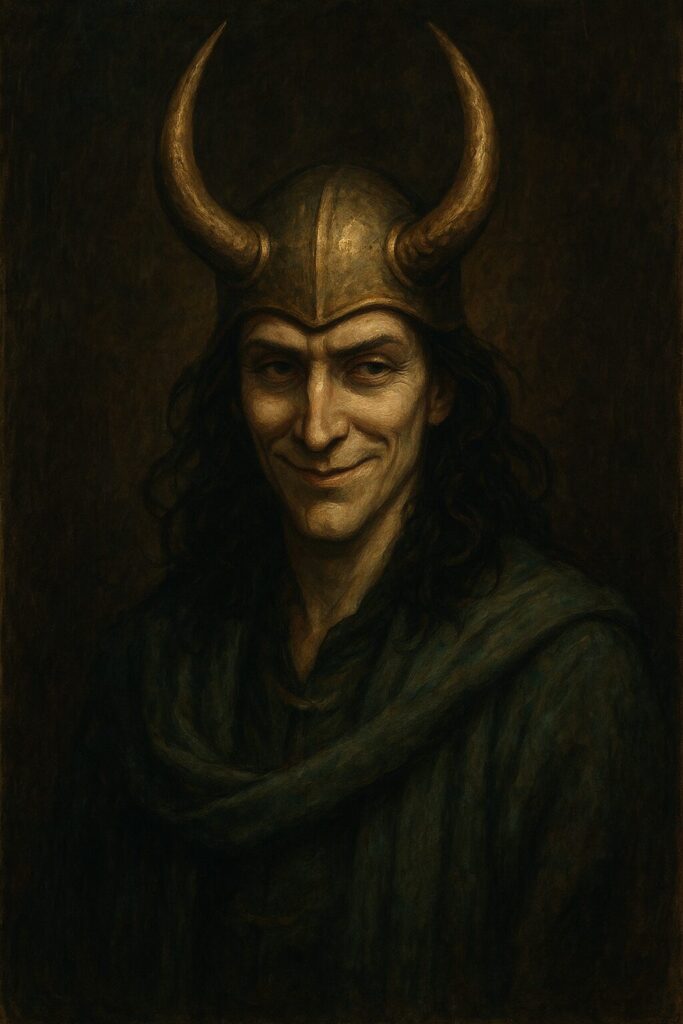
Loki
The god of mischief, cunning, and chaos, often causing trouble for the gods but also helping them at times. He is a shapeshifter and is known for his wit and deception. Though not inherently evil, he eventually betrays the gods, leading to Ragnarök, the end of the world. Loki is the father (and sometimes mother) of many monstrous beings, including the wolf Fenrir, the serpent Jörmungandr, and the half-dead goddess Hel. He is also responsible for the birth of Sleipnir, Odin’s eight-legged horse.
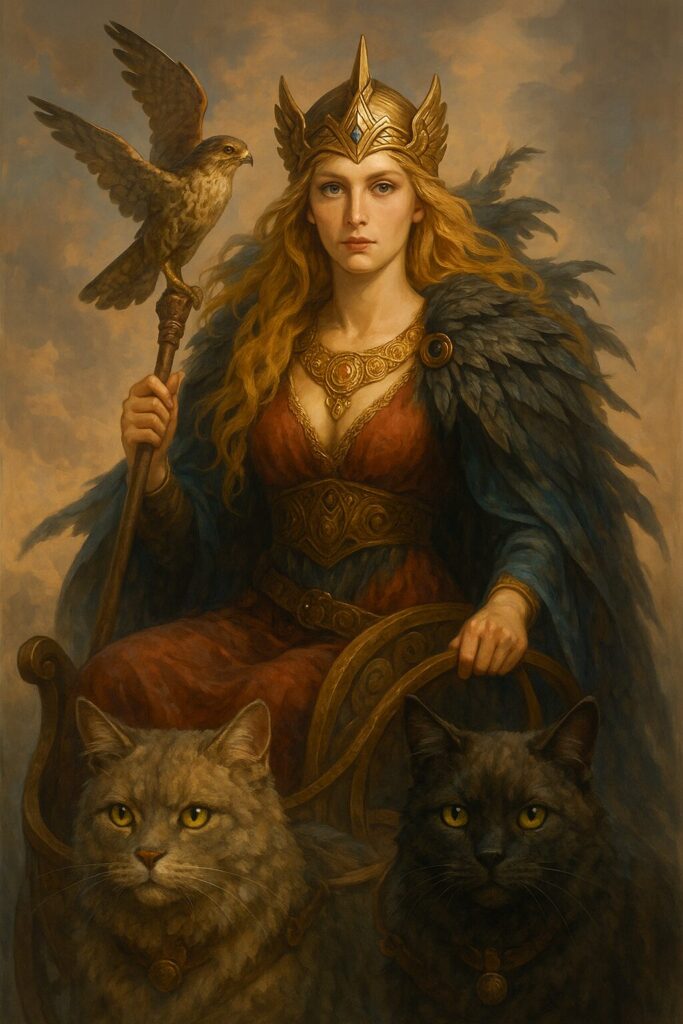
Freya
The Goddess of Love, Beauty, and Magic , associated with love, fertility, war, and sorcery (seidr magic). She is a member of the Vanir but resides with the Æsir after the war between the two groups. She rides a chariot pulled by two large cats and owns the falcon-feathered cloak that allows the wearer to fly. Half of the warriors who die in battle go to her hall, Fólkvangr, while the other half go to Odin’s Valhalla. She is also the owner of the Brísingamen necklace, a powerful magical artifact.
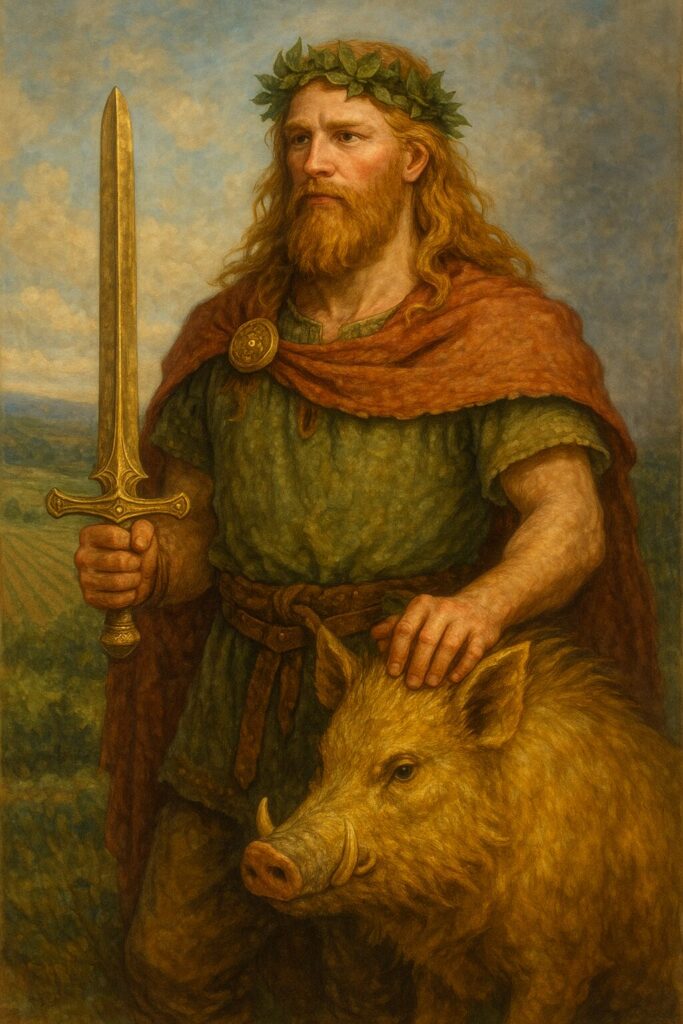
Freyr
The God of Fertility, Prosperity, and Peace. He is the twin brother of Freyja and another important Vanir deity, later integrated into the Æsir. He is the god of abundance, peace, and good harvests. He wields a magical sword that can fight on its own and rides a golden boar named Gullinbursti. He is closely associated with the land and was widely worshipped for ensuring good crops and prosperity. During Ragnarök, Freyr will fight the fire giant Surtr but will be at a disadvantage because he gave away his sword for love.
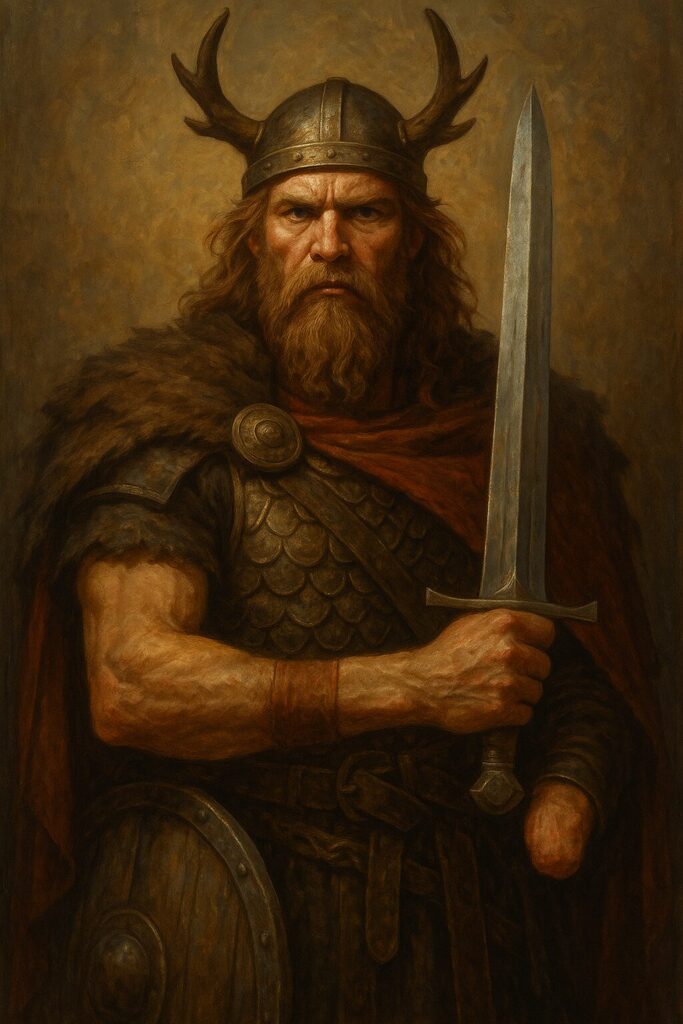
Tyr
The God of War and Justice, known for his bravery. He is famous for sacrificing his right hand to bind the great wolf Fenrir, ensuring the gods’ safety. Unlike Thor, who embodies brute strength, Tyr represents heroic courage and strategic warfare. He is also associated with law and justice, ensuring fair oaths and decisions. He is one of the oldest gods in the Norse pantheon.
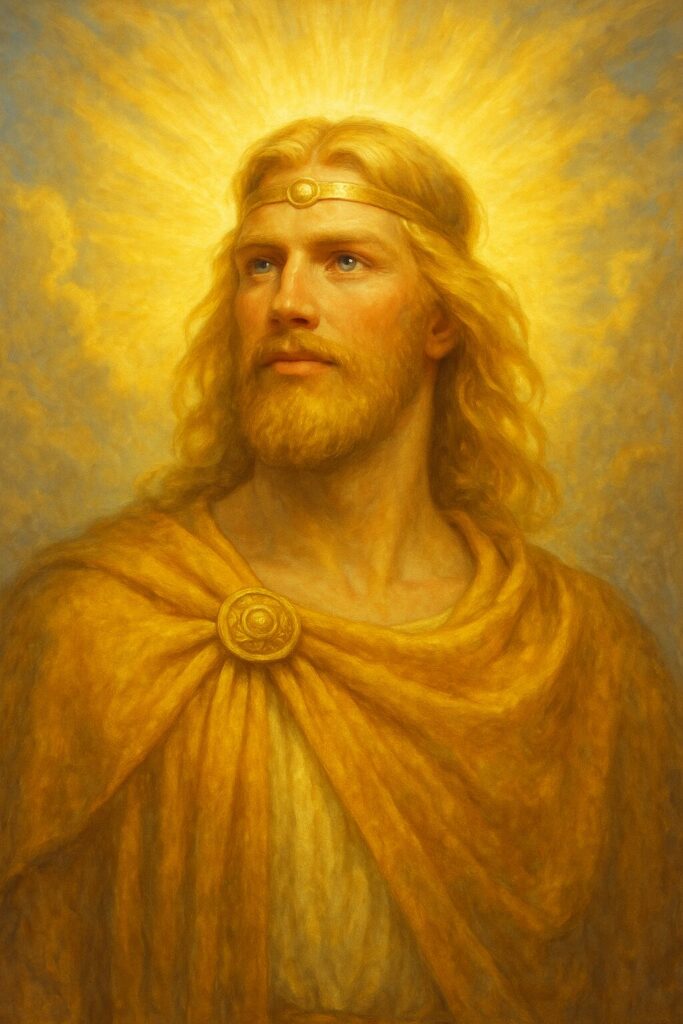
Balder
The Shining God of Light and Purity, often described as the most beloved among the Æsir. He is the son of Odin and Frigg, and his death marks the beginning of the events leading to Ragnarök. Due to a prophecy that Balder would die, Frigg made all things swear never to harm him—except mistletoe. Loki tricked Balder’s blind brother, Höðr, into throwing a mistletoe dart at him, killing him. His death represents the fragility of peace and joy.
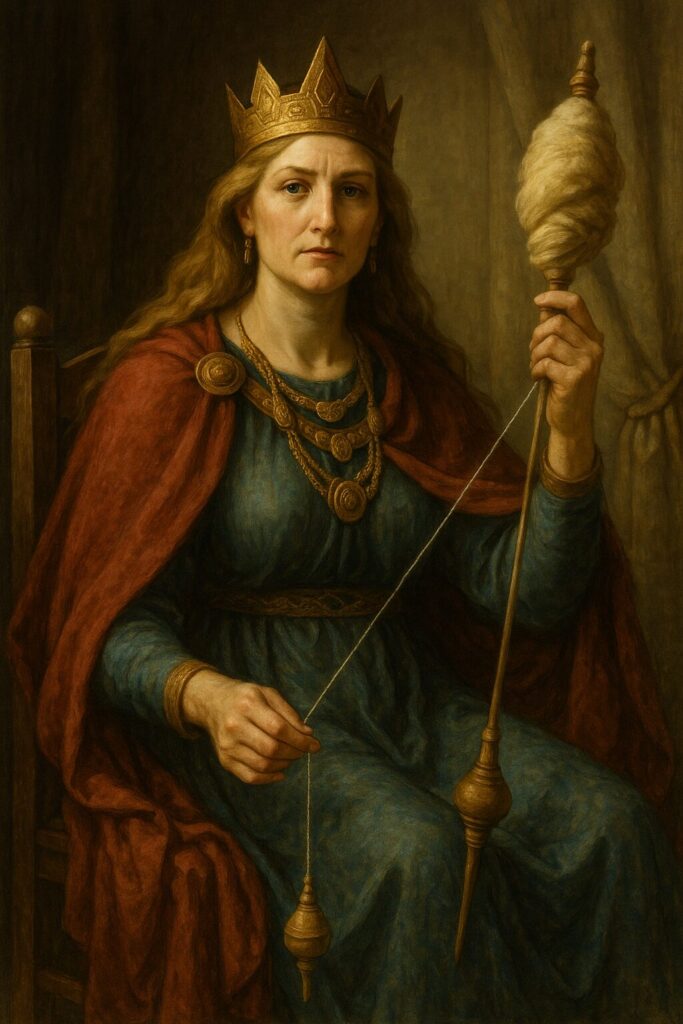
Frigg
Queen of the Gods and Goddess of Fate, is Odin’s wife and the goddess of marriage, motherhood and fate. She is known for her wisdom and ability to foresee the future, though she never reveals what she knows. She is a powerful and protective mother, especially over her son Balder, and tries in vain to prevent his death. She is often associated with spinning and weaving the threads of fate, similar to the Norns, who control destiny.
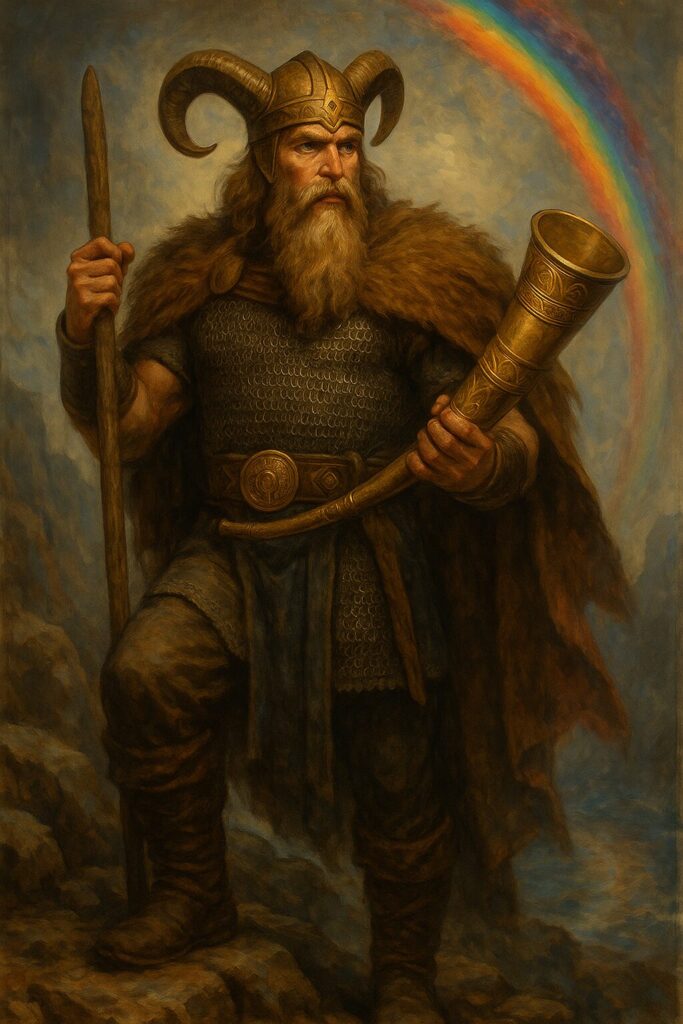
Heimdall
The Guardian of the Gods is the watchman of Asgard, guarding the rainbow bridge Bifröst, which connects the mortal world to the divine realm. He has supernatural hearing and sight, allowing him to detect enemies from great distances. He carries the Gjallarhorn, a horn that will sound when Ragnarök begins. He is destined to face Loki in their final battle. Some myths also suggest that Heimdall may have played a role in the creation of humanity.
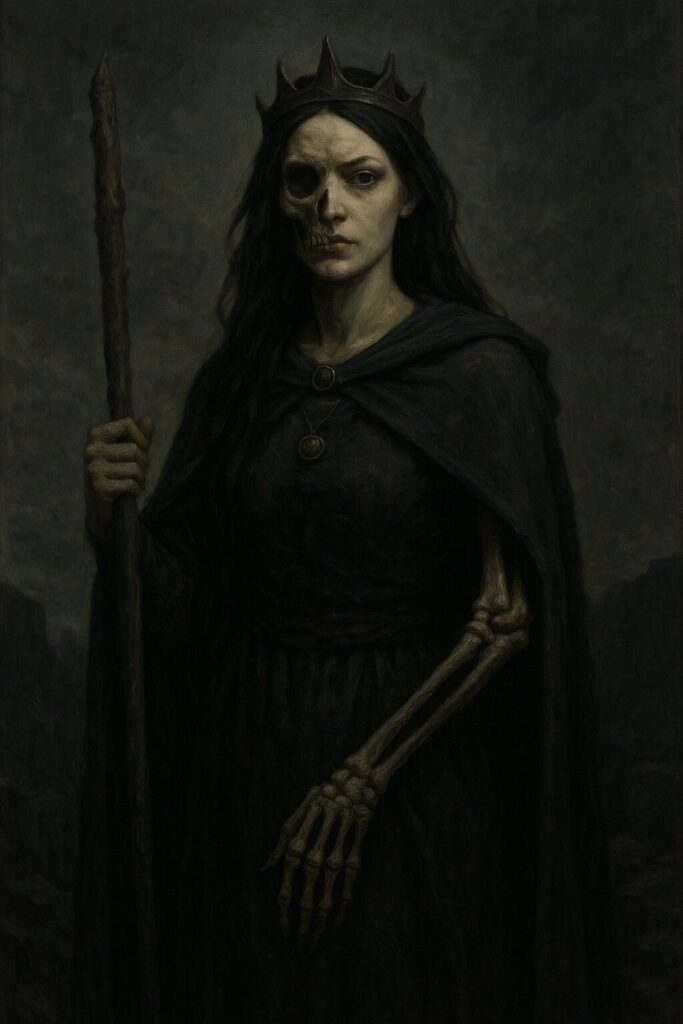
Hel
The Goddess of the Underworld, is daughter of Loki and the ruler of the realm of the dead, also named Hel. She presides over those who die of sickness, old age, or dishonor (unlike warriors who go to Valhalla or Fólkvangr). She is depicted as half-living and half-dead, with one side of her body appearing normal and the other skeletal. Though often feared, she is not evil but rather a necessary force governing the afterlife.
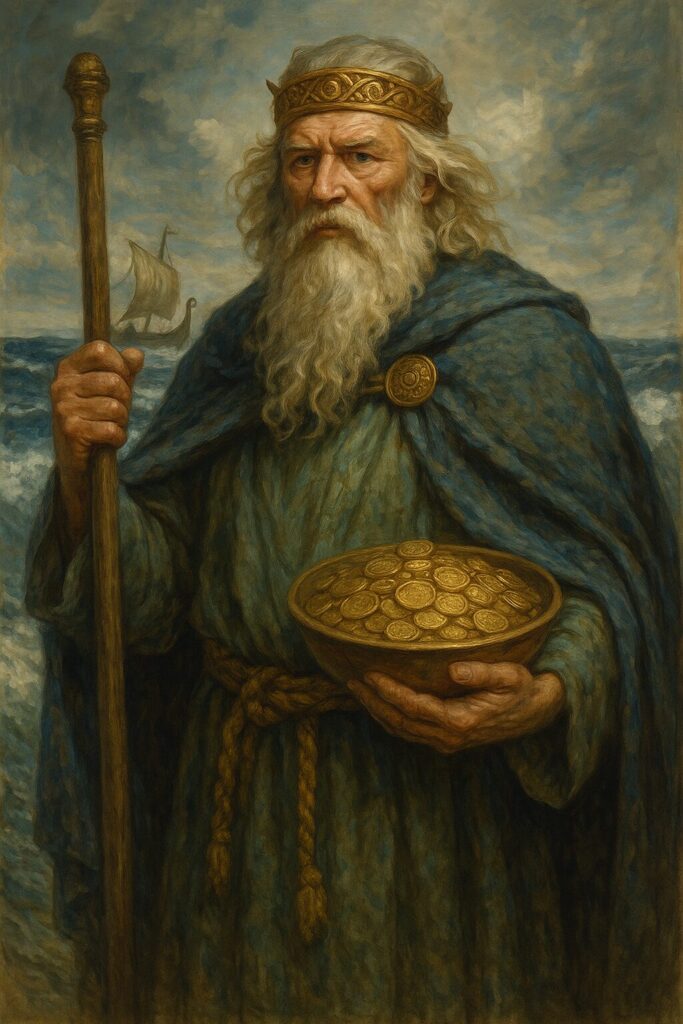
Njord
The God of the Sea and Wealth, is one of the Vanir gods and the father of Freyr and Freyja. He is also the god of fishing, and prosperity. He is associated with sailors, trade, and good fortune. Njord was given in marriage to the giantess Skadi, but their union was unhappy because she preferred the mountains while he loved the sea.
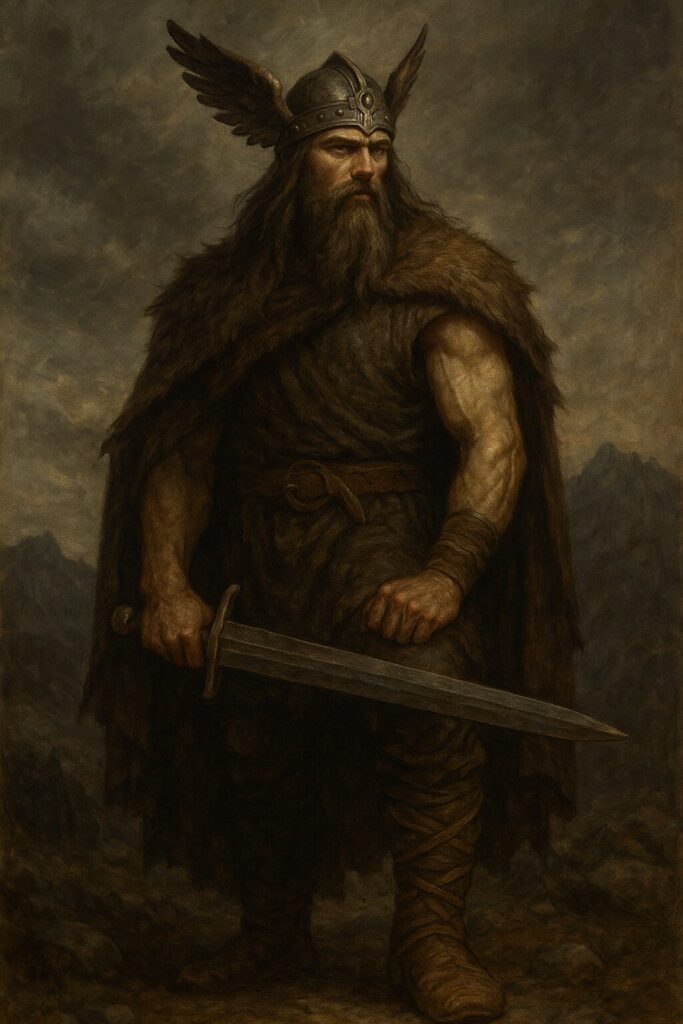
Vidar
The Silent God of Vengeance, is the god of silence, strength, and revenge, known for his role in Ragnarök. He is the son of Odin and a giantess and is one of the few gods destined to survive the end of the world. During Ragnarök, he will avenge Odin by killing the wolf Fenrir, using a special shoe made from all the scraps of leather ever cut by mortals.